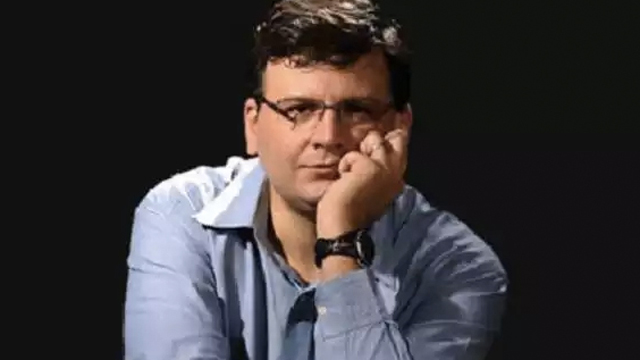Baha’i Artist Sentenced to Five Years in Prison for Teaching Art Classes in His Home Awaits Appeal Results

Shahriar Siroos, an Iranian Baha’i artist who was sentenced to five years in prison for the charge of establishing a group to “perturb the security of the country” for teaching art classes in his home, is awaiting a decision on his appeal.
A legal analyst, who asked not to be identified, told the International Campaign for Human Rights in Iran that the charge against Siroos, based on Article 498 of the Islamic Penal Code (2013), should have been deemed impermissible by the court.
“An art class is not a ‘group, society, or branch’ and there was no intention to ‘perturb’ the security of the country,” said the analyst. “Article 498 applies to subversive armed groups, not to an art instructor who held classes without a permit.”
Siroos’s lawyer, Mohammad Hadi Erfanian Kaseb, told the Campaign: “Branch 28 of the Revolutionary Court had sentenced my client to five years in prison for the charge of establishing a group [to perturb national security], subject to Article 498. The charge against my client is false and we have appealed the decision. Now we are waiting for Branch 36 of the Appeals Court to decide on the case.”
Iranian officials deny prosecuting Baha’is for their religious beliefs, but the community is one of the most severely persecuted religious minorities in the country. The faith is not recognized in the Islamic Republic’s Constitution and its members face harsh discrimination in all walks of life as well as prosecution for the public display of their faith.
According to Article 498: “Anyone, with any ideology, who establishes or directs a group, society, or branch, inside or outside the country, with any name or title, that constitutes more than two individuals and aims to perturb the security of the country, if not considered as mohareb (enemy of God), shall be sentenced to two to 10 years’ imprisonment.”
Siroos, 47, was an instructor for the banned Baha’i Institute for Higher Education (BIHE), an online university for which he taught art and humanities classes, until 2008. A former student of some of Iran’s best painters, including Aydin Aghdashloo, Rouin Pakbaz, and Ahmad Vakili, Siroos was well-connected in the art community and a number of his articles had been published in Iranian art magazines.
Siroos was arrested by agents of the Intelligence Ministry on June 30, 2015 for teaching art classes in his home and held in Evin Prison’s Ward 209 until his release on bail 50 days later on August 19. His initial trial was held on September 5, 2016 in Branch 28 of the Revolutionary Court presided by Judge Mohammad Moghisseh.
An informed source told the Campaign that Siroos had been previously questioned on several occasions by agents of the Intelligence Ministry in the mid-2000s.
“Most of the questions were about Shahriar [Siroos’s] teaching methods [at BIHE],” said the source. “But he only taught philosophy, art history and painting, which had nothing to do with religion and ideological issues.”
During a crackdown against BIHE in January 2009, security agents searched Siroos’ home and confiscated many of his personal belongings. Following the event, he stopped working for the university and only taught private classes at his home.






